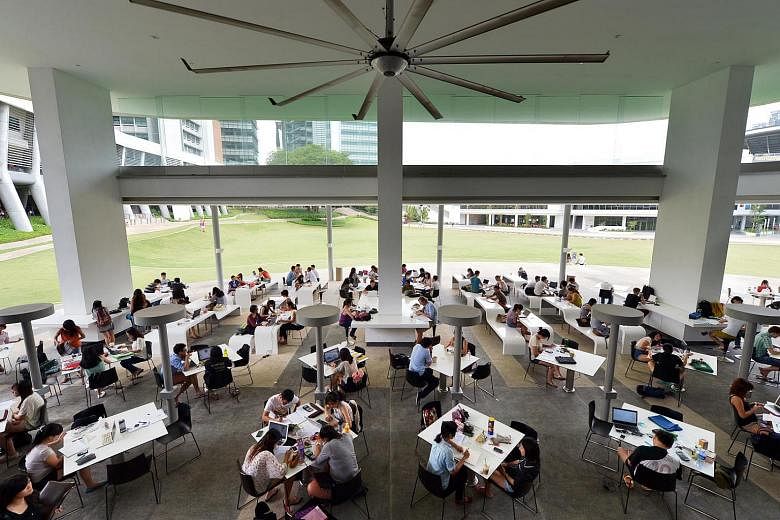Educational institutions cannot be just periodic stopovers on the learning journey.
These institutions, especially universities, have to be transformed into lifelong-learning institutions in order to help our people learn, improve and achieve better results throughout their lifetimes ("NUS launches centre to promote lifelong learning"; last Saturday).
They have to work as a vital and integral part of the public-private-people collaboration to ensure that our people stay relevant and at the cutting edge of the economy.
In the new economy, we need our graduates to operate in a multidisciplinary, multidimensional and multifaceted way so as to function as problem solvers and solution providers.
We need to also move further away from what educators call the factory-model system. This system is characterised by centralised planning, top-down management, classroom-centric learning, assessment-based outcomes, and separation from the community and industry.
In addition, it is not sufficient for our institutions to train our people for a specific profession or career.
Educational institutions need to help our people acquire different knowledge and skills to succeed in multiple careers and at different organisations and locations in the new world.
In this regard, teachers should shift from transferring content knowledge to helping our people become self-directed learners through practical and hands-on project-based learning activities.
They have to train them to learn on their own and apply evolving knowledge to achieve sustainable success.
They have to proactively engage the support of the community and industry in the educational process.
It will ensure that students develop critical thinking and learn how to be creative and innovative in leading and managing real world issues.
While it is important to prepare our people for the future, it is also important to be mindful that the world is probably changing faster than we can predict its future landscapes and other outcomes.
Therefore, it is important that we help our people acquire what educators term "21st century skills" to help our students respond to and leverage the volatile, uncertain, complex and ambiguous future.
We cannot stop challenges, but we can help our people develop appropriate capacity, capability, agility and tenacity to resolve these challenges.
By helping them develop 21st century skills, we can help unleash and channel their energies to become better leaders and useful members of the economy and society.
Formal education can only open the door to a career, but lifelong learning can help our students reach the top floor of the economy and life.
Patrick Liew Siow Gian (Dr)

